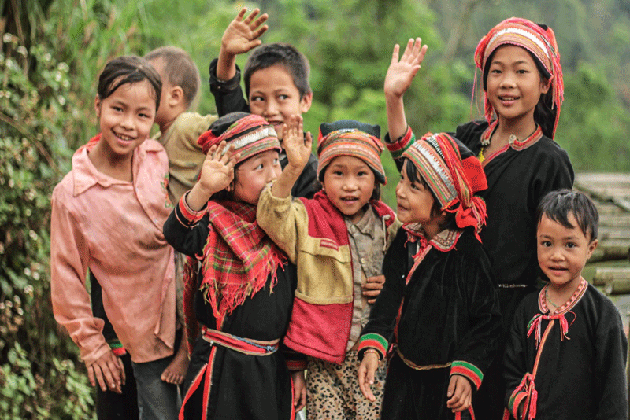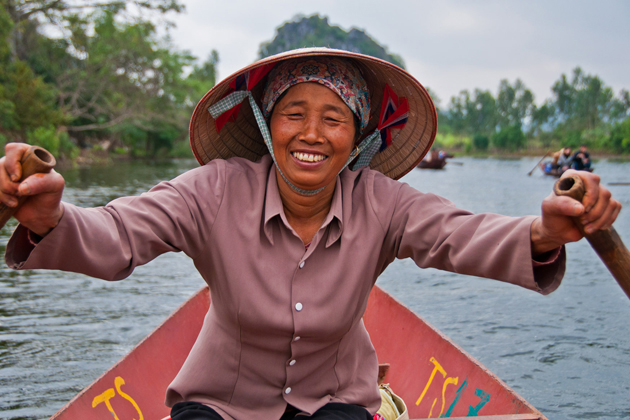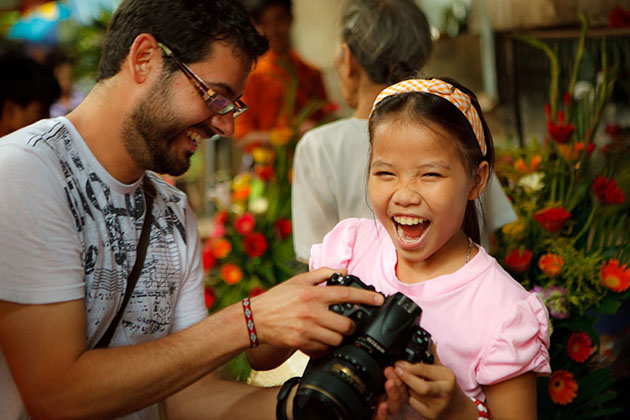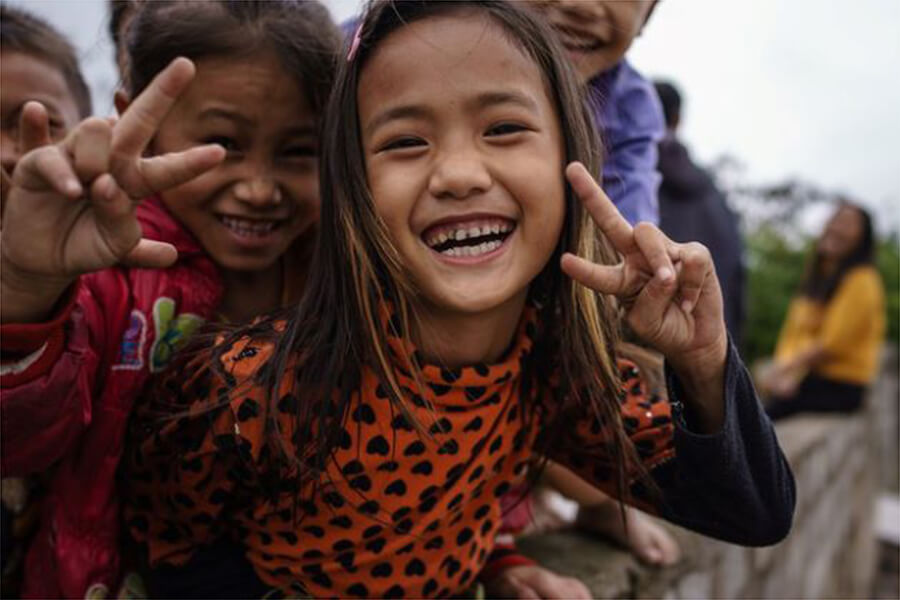Do you ask yourself: How to greet in Vietnamese before visiting this beautiful country? Vietnam is the nation that appreciates the hierarchy, which is obviously represented by the greetings custom. In order to show your enthusiasm and respect to Vietnamese culture, you are recommended to learn about the Vietnamese greetings.
How to say “hello” in Vietnamese
The simplest way to greet a Vietnamese is: “Xin chào” /’sin taʊ/ that means “Hello” in English.
This is the most common greeting that tourists prefer to use because it is short and easy to pronounce but it is not allowed for the Vietnamese junior to say that way to the senior. Therefore, if you are the younger, it will be highly appreciated to learn more honored greeting sentences.
– Em chào chị /em taʊ ti/: hello to the older girls (older than you)
– Em chào anh /em taʊ aŋ/: hello to the older boys (older than you)
– Cháu chào cô /’taʊ taʊ kɒ/: hello to the older women (same age as your mother)
– Cháu chào chú /’taʊ taʊ ‘tu/: hello to the older men (same age as your father)
– Cháu chào bà /’taʊ taʊ bɑː/: hello to the very old women (same age as your grandma)
– Cháu chào ông /’taʊ taʊ ɒŋ/: hello to the very old men (same age as your grandpa)
With the appreciation for the hierarchy, you should greet from the oldest to the youngest or according to their rank in the family. Moreover, the younger and the junior will greet first and be reciprocated by the older and the senior. The way to respond is simply “ừ” /u/ or courteously “Chào em” /taʊ em/ (for the younger girls/boys at the same level), “Chào cháu” /taʊ ‘taʊ/ (for the level of your son/daughter/grandson/granddaughter).
How to say “goodbye” in Vietnamese
You can simply say “Tạm biệt” /tam biet/ as “goodbye” to everyone. In Vietnamese, there is no ending sound so that you should not pronounce “t” at the end of the word.
An interesting point in Vietnamese greetings is that you can use the same “hello” honored sentences to say goodbye to the senior.
Body language in Vietnamese greetings
The body language in informal communication is less complicated than that in business protocol. It’s up to you to shake hands with the native people when meeting them at the first time. Normally, the men prefer to shake hands while the women like bowing slightly and smiling. Hugging is generally dedicated to the relatives and close friends but you still give them a hug after knowing each other as saying goodbye. The most preferable suggestion is looking into their eyes, smiling and greeting. For the children, they are taught to fold the hands across the chest and bowing when greeting to show their esteem to the senior; however, this habit will be waived when they grow up.
Bad manners in greetings custom
It is impolite if you ignore or do not respond to the others’ greetings. They will suppose that you do not respect them and are not willing to talk to you next time.
Besides, you should not point to someone when introducing him or her to another because that is how people get attention from their pets or command them to do something in Vietnam.
Vietnamese greetings custom has expressed the “Respect the old, love the children” culture that was built and developed for thousands of years by the local people. Learning about it will help you get easier to adapt to the native lifestyle and have the best experience in this charming country.
Do not hesitate to tell us about your thought about Vietnamese culture! We are always willing to hear from you!


